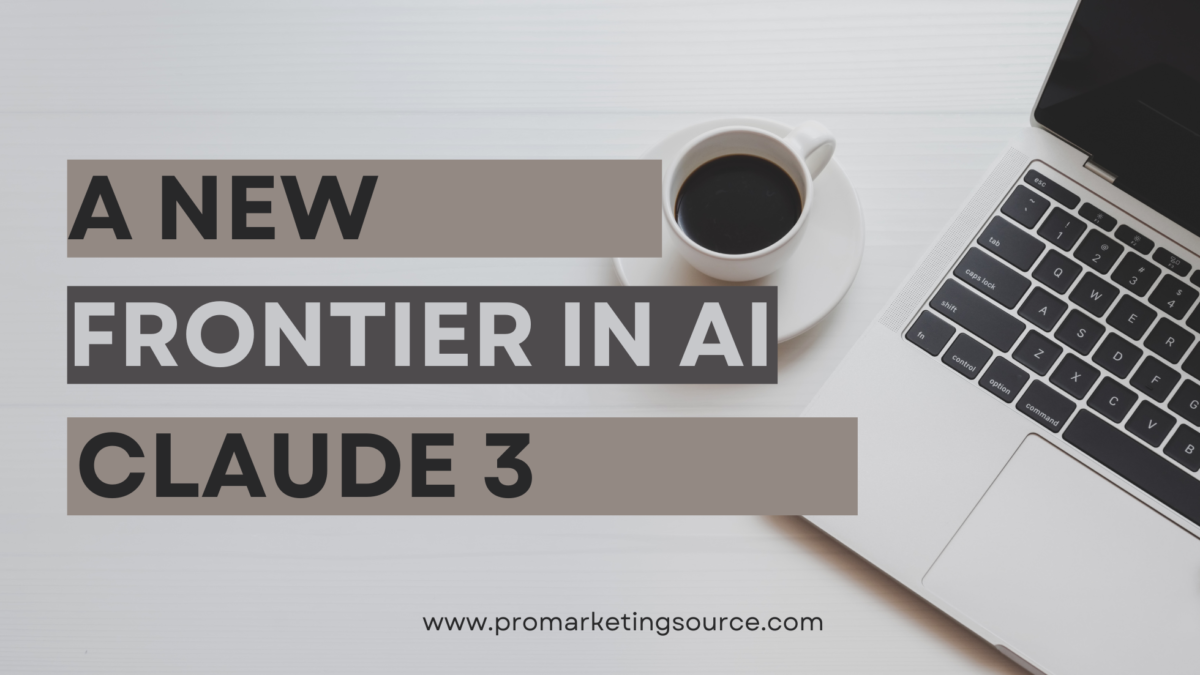Exploring the New Frontier: The Advent of Claude 3
In an era marked by rapid advancements in artificial intelligence, the launch of Claude 3 by Anthropic stands as a significant milestone. This AI model, with its groundbreaking capabilities, promises to redefine the benchmarks for what machines can achieve, edging closer to the realm of human-like reasoning and cognition. With Claude 3 and its variants—Haiku, Sonnet, and Opus—Anthropic introduces a tiered approach to AI, catering to a wide array of computational needs and signaling a shift in the technological paradigms we've come to know.
The Technological Marvel of Claude 3
The essence of Claude 3's innovation lies in its nuanced architecture and capabilities, which are claimed to surpass those of its predecessors, including the well-regarded GPT models by OpenAI. This achievement marks a pivotal moment in the AI field, suggesting a future where digital cognition mirrors human thought processes more closely than ever before. Each variant of Claude 3, from Haiku to Opus, is designed to fulfill distinct computational roles, from generating concise poetry to tackling more complex, nuanced tasks. This diversification indicates a sophisticated understanding of the varying demands present in today's tech landscape.
Benchmarking Claude 3: A Comparative Perspective
A critical aspect of Claude 3's introduction is its performance in comparison to existing AI models, particularly GPT-4. Such comparisons are vital for understanding Claude 3's place in the competitive landscape of AI technologies. However, benchmarking AI models is a nuanced affair, with performance varying significantly based on the nature of the tasks and the specificity of the prompts provided. The article insightfully raises the issue of how benchmarks, while useful, may not fully encapsulate an AI's versatility and effectiveness in real-world applications.
Ethical and Societal Considerations in the Age of Advanced AI
The development of AI models like Claude 3 raises profound ethical questions, particularly regarding the use of synthetic data and the model's programming to navigate ethical dilemmas. Anthropic's commitment to safety and ethical AI use is commendable, highlighting an industry-wide shift towards more responsible AI development practices. However, this evolution also brings to light the challenges of ensuring AI technologies benefit society without infringing on privacy rights or exacerbating existing social inequalities.
Navigating the Complex Landscape of AI Effectiveness
The subjective nature of AI performance, as discussed in the critique, emphasizes the complexity of creating models that can genuinely understand and respond to human prompts in a meaningful way. This subjectivity extends to the evaluation of AI, where effectiveness is often in the eye of the beholder, depending on the specific requirements and expectations of the end-user. It is this variability that makes the development of AI like Claude 3 both a technological challenge and a philosophical inquiry into the nature of intelligence itself.
The Path Forward: Ethical AI Development and Societal Impact
As we look towards the future, the development of AI technologies like Claude 3 invites us to consider not only the technical achievements but also the broader implications for society. The potential for AI to transform industries, enhance creative endeavors, and revolutionize how we interact with technology is immense. Yet, this potential comes with a responsibility to navigate the ethical terrain that such advancements uncover. Balancing the transformative power of AI with considerations for privacy, security, and fairness will be paramount as we move forward.
Conclusion: Embracing the Future with Ethical and Innovative AI
Claude 3 represents more than just a technological advancement; it embodies the ongoing journey towards creating AI that can truly complement and enhance human capabilities. This journey is fraught with challenges, from technical hurdles to ethical dilemmas, yet it is also filled with potential for profound societal benefits. As we stand on the cusp of this new era in artificial intelligence, the development and deployment of models like Claude 3 offer a glimpse into a future where the boundaries between human and machine cognition are increasingly blurred. It is a future that demands not only technological innovation but also ethical foresight and a commitment to harnessing AI for the greater good.
In crafting AI technologies that can navigate the complex landscape of human language, thought, and creativity, developers like Anthropic are charting a course towards a more interconnected and intelligent world. The evolution of AI models such as Claude 3 is not just a testament to human ingenuity but also a call to action for responsible stewardship of these powerful tools. By fostering a dialogue between technologists, ethicists, policymakers, and the public, we can ensure that AI's future is one that enhances rather than diminishes the human experience.
The development of Claude 3 and its implications for the AI industry and beyond serve as a reminder of the dual nature of technological progress. While we marvel at the capabilities of such advanced AI models, we must also remain vigilant in addressing the ethical and societal questions they raise. As we navigate this terrain, the principles of transparency, accountability, and ethical technology use must guide our way, ensuring that AI serves as a force for positive change in the world.




